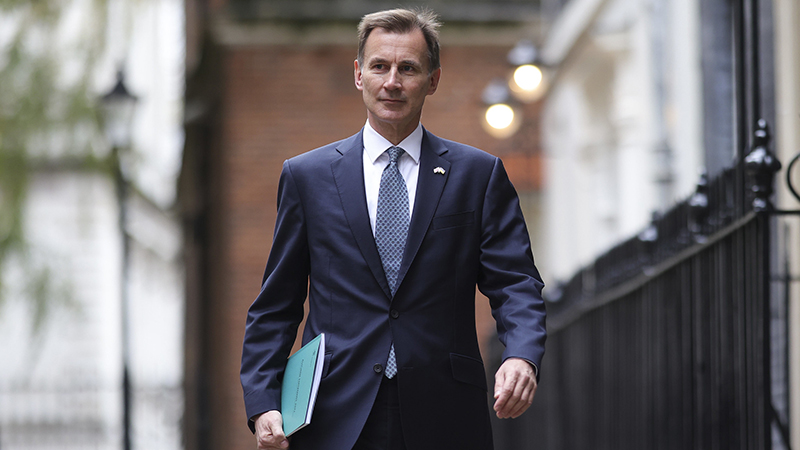Monday 13 March
- – Full-year results from Direct Line and Phoenix Group
- – In Europe, quarterly results from Porsche and Tod’s
Tuesday 14 March
- – Full-year results from Sabre Insurance and Costain
- – First-half results from Harworth and Close Brothers
Close Brothers Group will announce its half-year results on Tuesday. In the first quarter of the firm’s 2023 financial year, its asset management arm suffered a 3% hit to assets under management.
Steve Clayton, head of equity funds at Hargreaves Lansdown, said: “There could be a lot of moving parts with these results. The group has been struggling to contain losses within its former Novitas division, which provided financing to the legal sector. The group’s market making business, Winterflood, has been suffering from depressed trading volumes for some time and analysts will be looking for signs that this is beginning to turn the corner.
“The core banking division has been the bright spot of late, but with the economy facing higher interest rates than for many years, the level of bad debts emerging will be critical. The shares have been drab of late and now offer a yield of over 6%.”
- – UK unemployment and wage growth
- – US NFIB smaller companies business survey
- – US consumer price inflation figures
- – In Europe, quarterly results from Volkswagen
Wednesday 15 March
- – Full-year results from Balfour Beatty, Marshalls, Ferrexpo and 4imprint
- – First-half results from Kin & Carta
- – Trading statement from Trainline
- – The spring budget
Jeremy Hunt will present his second fiscal statement since being appointed chancellor in October. The spring budget will see the government set out measures supporting its economic plan.
According to industry commentators, an extension to the Energy Price Guarantee (EPG) could be on the cards, while no further tinkering to tax thresholds is expected.
Laura Suter, AJ Bell’s head of personal finance, said: “It’s a no brainer for Jeremy Hunt to extend the EPG for another few months, until energy prices fall further. The plan to make the EPG less generous in April at the same time as the government stops the monthly rebate we’ve all been getting off our bills would have landed the average household with an extra £900 on their annual fuel bills in one swipe.
“It is expected to cost the government around £3bn but falling wholesale energy prices mean that so far the EPG hasn’t cost the government as much as expected, providing it with some wiggle room to extend support now.
“While the move will protect average households from an extra £500 on their annual bills, energy bills will still cost us all more. The £400 off bills the government has been dishing out this winter, to the tune of around £66 a month, will still end in April. At the same time, the cost of living support payments for those on certain benefits is less generous this year than it was last year – which all adds up to bigger bills.”
Interactive Investor senior personal finance analyst Myron Jobson added: “The latest bumper tax haul, up £65bn year-on-year between April 2022 and January 2023 at £660bn, shows that the deep freeze to tax thresholds and allowances until 2028 is a money spinner for the government. The government hasn’t given any indication that it intends to tinker with what has proved to be a lucrative formula.
“It is certainly one way for the government to replenish the public kitty following big spending on Covid and cost-of-living support measures, but the heightened tax burden comes at a time when many can least afford it. Our research shows that a worker on £30,000 could pay an additional £1,919 in tax between the current tax year to the end of the 2027/28 tax year if income tax thresholds remained unchanged, rising to £4,280 for someone earning £50,000.
“The freezing of tax thresholds and allowances in tandem with wage inflation have pushed a large number of workers into higher tax brackets. This means we’ll all be paying more and more tax each year, as tax thresholds remain the same until 2028, while our pay and everything else around us goes up with inflation.”
- – EU industrial production
- – US producer price (factory gate) inflation figures
- – US retail sales
- – US NAHB housebuilding industry survey
- – US weekly oil inventories
- – In Asia, quarterly results from Foxconn
- – In Europe, quarterly results from Inditex, BMW, H&M and E.On
- – In the US, quarterly results from Jack Daniel’s distiller Pinduoduo, Franco-Nevada and Lennar
Thursday 16 March
- – Full-year results from Rentokil Initial, Deliveroo, TI Fluid Systems, Gym Group and Centamin
- – First-half results from DFS Furniture
- – Trading statements from Halma
- – Interest rate decision from the European Central Bank
- – US new housing permits
- – US new housing starts
- – US weekly unemployment claims
- – In Europe, quarterly results from Audi, ENEL and Swatch
- – In the US, quarterly results from Adobe, Dollar General, FedEx and Jabil
Friday 17 March
- – Full-year results from Bodycote
- – EU consumer price inflation figures
- – US industrial production and capacity utilisation
- – In Europe, quarterly results from Vonovia







